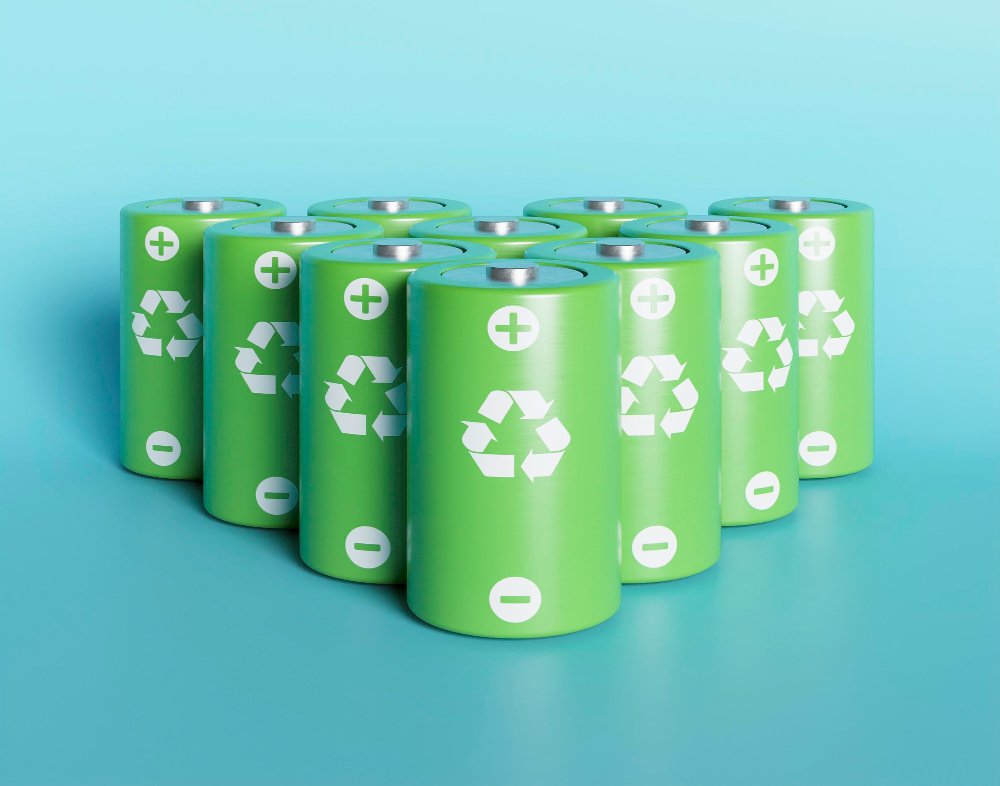Renewable Energy for All, Now and Forever
Transforming end-of-life Lithium-Ion Batteries into high-quality battery materials, fostering a greener and more sustainable energy future.
Our Commitment to a Circular Future
Our vision extends beyond us—it’s about creating a collective impact. At MBVM Ultra Energy Pvt. Ltd, we see ourselves as enablers of change, dedicated to fostering a truly Circular Economy.
We play a crucial role in sustainability by recovering black mass, which is further used to extract vital rare Earth metals like Lithium, Cobalt, Nickel, and Manganese from used Lithium-ion cells. By reintegrating these materials into battery manufacturing, we ensure resources are continuously reused—keeping the cycle of Circularity alive.

Global Recycling of Used Lithium-ion Batteries for a Sustainable Future
Our proprietary, in-house Net Zero Waste and Zero Emissions process enables the efficient recycling of end-of-life Lithium-ion batteries. This advanced process allows us to recover:

Refined Black Mass
Through our specialized process, we recover high-purity Black Mass from used Lithium-ion batteries, ensuring impurity levels remain below 1%.

Critical Minerals
We refine high-quality Lithium, Nickel, Cobalt, and Manganese from Black Mass, making them suitable for reuse in Lithium-ion battery production.

Secondary Products
Our process extracts high-quality Plastic, Aluminium, Copper, and Stainless Steel, all of which are repurposed by recyclers for various applications.
Why Partner With Us?

The Critical Need for Battery Recycling
As of 2025, the global demand for lithium-ion batteries continues to surge, propelled by the rapid expansion of the electric vehicle (EV) sector and the increasing integration of renewable energy sources. This growth underscores the critical need for sustainable resource management, particularly in the recycling of rare earth metals essential for battery production.
Current Market Dynamics
Lithium Demand: The lithium market was valued at approximately $9.2 billion in 2024 and is projected to reach $16.8 billion by 2030, reflecting a compound annual growth rate (CAGR) of 10.5%.
Battery Materials Market: The battery materials market is expected to grow from $63.54 billion in 2024 to $70.68 billion in 2025, with a CAGR of 11.2%.
Strategic Importance of Recycling
Enhancing recycling efforts is crucial for reducing reliance on primary mining, mitigating environmental impacts, and ensuring a stable supply of materials for battery production. The International Energy Agency estimates that scaling up metal recycling could decrease the need for new mining activities by 25-40% by 2050, with specific reductions in lithium and nickel mining requirements.
Driving Sustainability: Our Key Commitments
In the 21st century, environmental sustainability has become a top priority, with a growing demand for battery recycling solutions. As awareness rises, more industries and individuals are seeking sustainable alternatives. Let’s explore how our Sustainable Development Goals drive a greener future.
1.2M+
Metric Tonnes of Lithium-ion battery materials needed globally, rising to 7.5M by 2030.
95%+
Material Recovery Rate from end-of-life Lithium-ion batteries.
80%
Carbon Footprint Reduction compared to traditional mining and production.
100%
Circular Economy Commitment with zero-waste recycling initiatives
Any questions?
Lithium-ion battery recycling is the process of recovering valuable materials like Lithium, Cobalt, Nickel, and Manganese from end-of-life batteries. These materials are then reused in new battery production, reducing waste and environmental impact.
High-value materials such as Lithium, Cobalt, Nickel, Manganese, Graphite, and various metals (Aluminum, Copper, Steel) can be extracted and repurposed for battery manufacturing and other industrial applications.
By reintroducing recovered materials into the supply chain, recycling minimizes landfill waste, lowers carbon emissions from mining, and supports a Circular Economy where resources are continually reused.
Yes, through advanced recycling processes, recovered materials maintain high purity levels, making them just as efficient as newly mined resources for battery cell production.
Industries such as Electric Vehicles (EVs), renewable energy storage, consumer electronics, and industrial manufacturing benefit significantly from using recycled battery materials.
